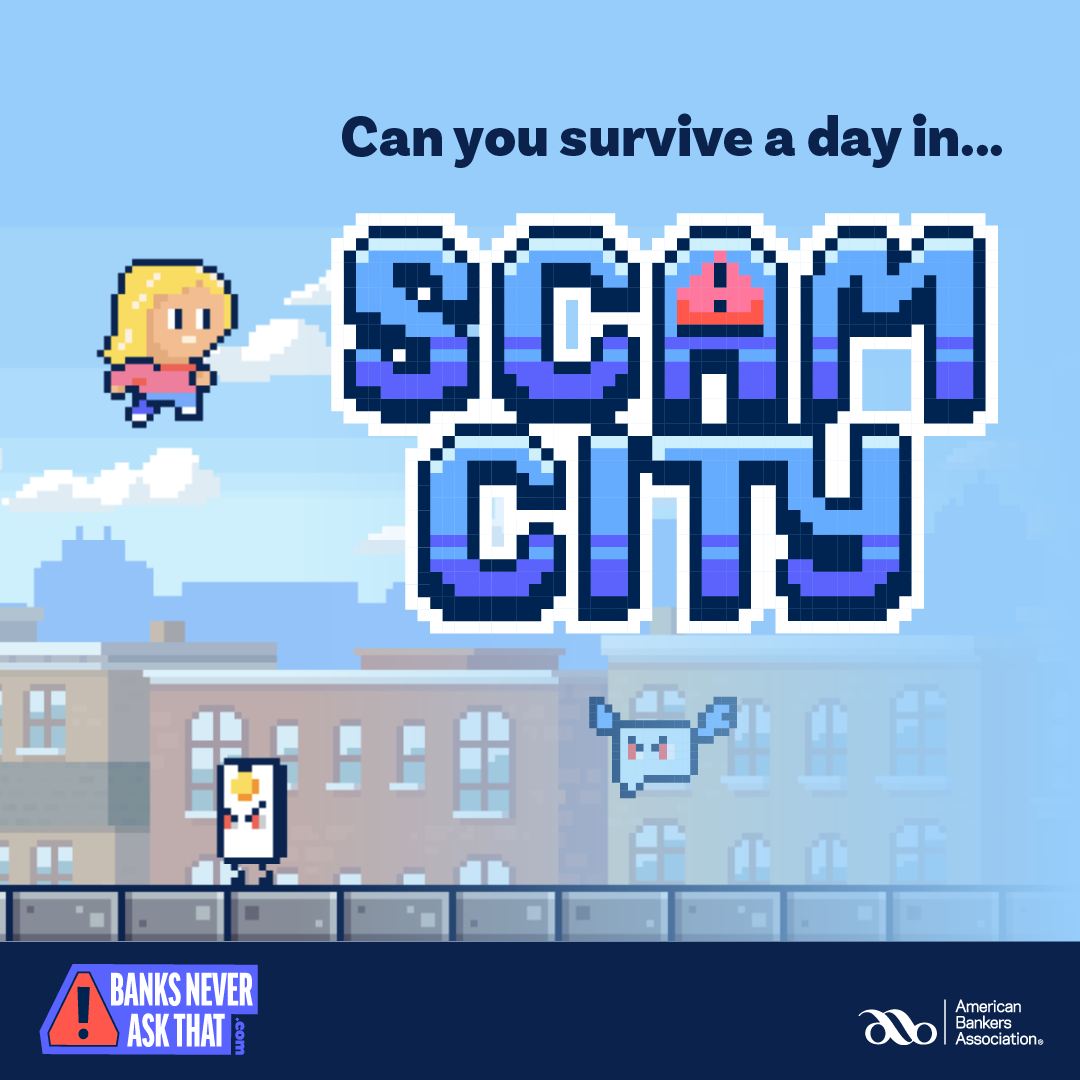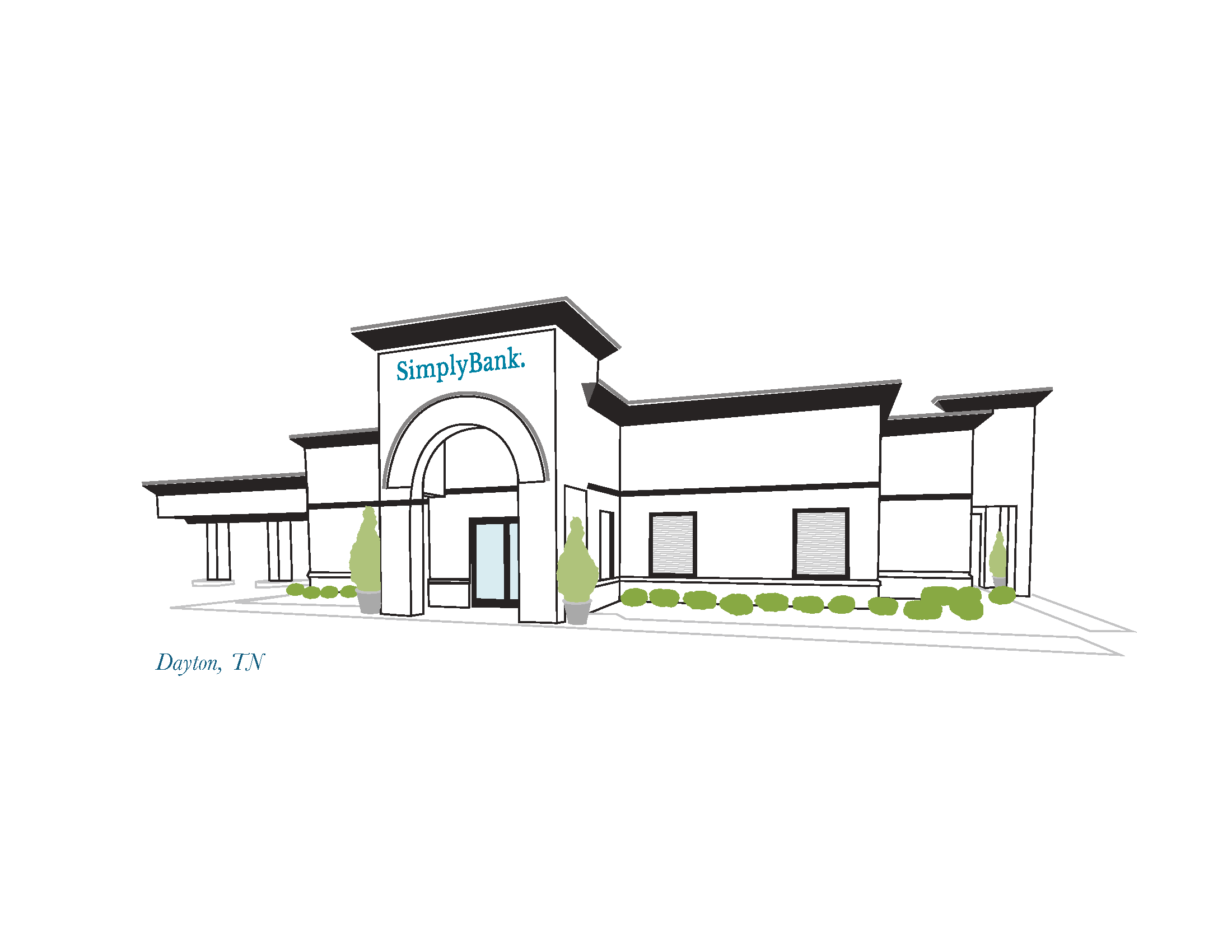Stay savvy, stay safe.
More staying safe, less stressing out

Banks Never Ask That.
Every day regular people like you lose their hard-earned money to online phishing scams. Don’t fall for fake — learn how to spot shady texts, emails, and phone calls by knowing the things your bank would never ask.
Are you familiar with common schemes used by fraudsters who pretend to be banks? Check out the list below from Banks Never Ask That, a national campaign built by America's banks to help stop fraud in its tracks.
Plus, play Scam City to see if you can outsmart common money-stealing schemes.
Tips to avoid being scammed:
- Avoid clicking suspicious links in your email inbox
- Watch out for suspicious attachments
- Don't rely on Caller ID for incoming calls
- Watch out for a false sense of urgency
- Never send personal/sensitive info in a text
- Be wary of text about payment or payment apps
(from www.banksneveraskthat.com)

Bank Locally.
Beyond their typically smaller size, community banks are defined by their focus on the geographic area, or community, they call home. In contrast to larger financial institutions, the money you keep with a community bank remains in that community.
That means your money stays local via loans to neighborhood small businesses and sponsorships of community initiatives. Banking with a community bank is the financial equivalent of shopping locally.
Find out more about the benefits of banking locally here.
(from www.icba.org/bank-locally)

